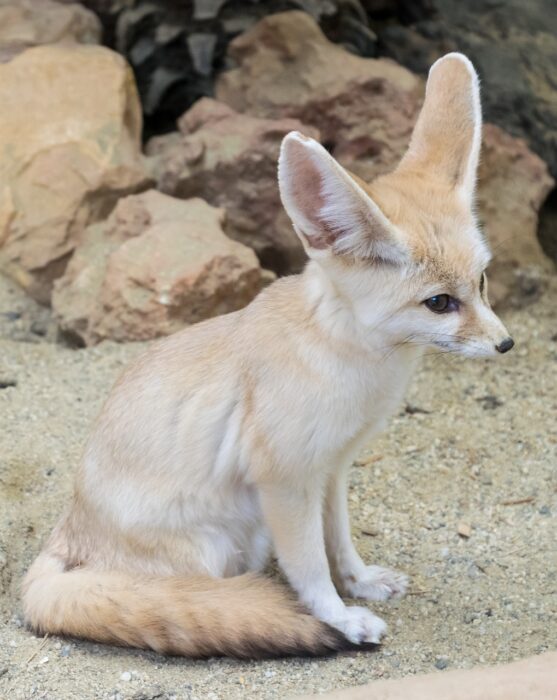Sahara Desert Morocco fox
The Sahara Desert is one of the harshest environments on the planet, with extreme temperatures and little water. Despite these conditions, a variety of animals have adapted to life in the desert, including the Morocco fox, also known as the fennec fox.
The Morocco fox is a small, nocturnal fox that is found throughout the Sahara Desert, including in Morocco, Algeria, Tunisia, and Egypt. It is the smallest fox species in the world, with adults typically weighing between 1.5 and 3.5 pounds and measuring about 9-16 inches in length. The fox has distinctive large ears, which help it to dissipate heat and locate prey in the dark.
The Morocco fox is well adapted to life in the desert. Its thick, sandy-colored fur helps it to blend into its surroundings, and its large ears serve not only to dissipate heat but also to listen for prey moving underground. The fox is primarily a nocturnal animal, spending the day in burrows that it digs itself or takes over from other animals.
The Morocco fox is an omnivore, feeding on a variety of plants and animals. Its diet includes insects, small mammals, birds, eggs, and even fruit. It has a special adaptation that allows it to survive in the harsh desert environment: it can obtain all the water it needs from the food it eats and requires very little additional water.
Despite its adaptations, the Morocco fox faces threats from habitat loss due to human activities, including mining and agriculture. Additionally, the fox is often hunted for its fur, which is valued in the international trade in exotic pets.
Conservation efforts are underway to protect the Morocco fox and its habitat. In Morocco, for example, the fox is protected under law, and efforts are being made to educate the public about the importance of protecting this and other desert species.
In conclusion, the Morocco fox is a fascinating and important species that has adapted to life in the harsh conditions of the Sahara Desert. With continued conservation efforts, we can help to ensure that this and other desert species are protected for future generations to enjoy.
information about the Morocco fox:
The Morocco fox, or fennec fox, has several unique adaptations that allow it to survive in the harsh conditions of the Sahara Desert. One of its most distinctive features is its large ears, which can measure up to 6 inches in length. These ears help the fox to dissipate heat and stay cool in the hot desert climate, and also allow it to hear prey moving underground.
Another adaptation of the Morocco fox is its ability to survive without drinking water. The fox obtains all the water it needs from the food it eats, which includes insects, small mammals, birds, and fruit. This allows the fox to live in areas where water is scarce or non-existent.
The Morocco fox is also a social animal, living in family groups that typically include a mated pair and their offspring. These groups communicate with each other through a variety of vocalizations, including yips, barks, and howls.
In addition to being hunted for its fur, the Morocco fox faces threats from habitat loss due to human activities such as mining, oil exploration, and agriculture. These activities can destroy the fox’s burrows and disrupt its food sources.
Efforts to conserve the Morocco fox and its habitat are underway in several countries throughout the Sahara Desert. In Morocco, for example, the fox is protected by law, and conservation organizations are working to educate the public about the importance of protecting this and other desert species.
Overall, the Morocco fox is a fascinating and unique species that has adapted to life in one of the harshest environments on Earth. With continued conservation efforts, we can help to ensure that this and other desert species are protected for generations to come.


Leave a Reply